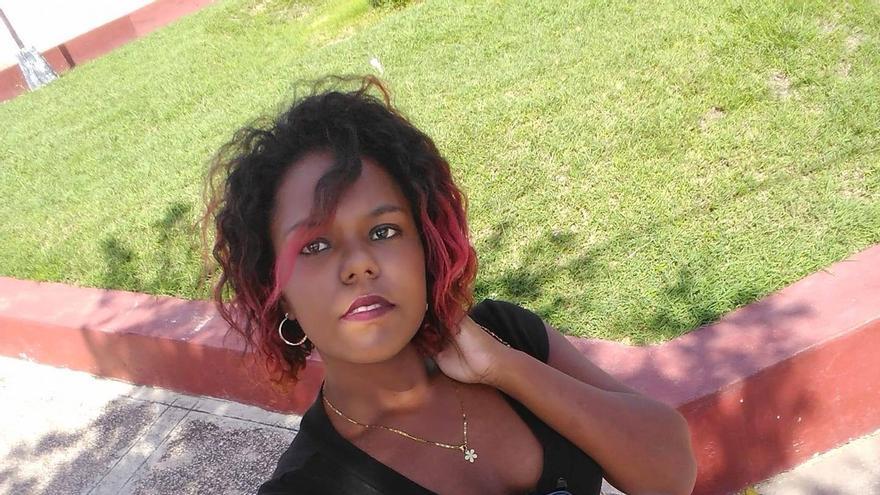
![]() 14ymedio, Havana, August 4 2020 — Ruhama Fernández, the YouTuber who won the Red Cuban Power influencer contest earlier this year, revealed Monday that she has been barred from travelling abroad. Cuban authorities have justified the move on “public interest” grounds.
14ymedio, Havana, August 4 2020 — Ruhama Fernández, the YouTuber who won the Red Cuban Power influencer contest earlier this year, revealed Monday that she has been barred from travelling abroad. Cuban authorities have justified the move on “public interest” grounds.
The 21-year-old learned of her situation when she went to pick up her passport at the Offices of the Interior Ministry in Palma Soriano, in the province of Santiago de Cuba.
Fernández explained to 14ymedio that she had gone to renew her documents because she had won a trip in the influencer contest. Her parents live in the United States.
The Interior official asked for her ID number. “When I entered it into the system,” says Fernández, “it gave an error, a red thing popped up.” After trying a few more times, the official told her: “No, you’re barred from travel due to public interest concerns. Look into it, fix this then come back to get your passport.” Fernández says that the woman then asked her if she had previously left the country, or if she was a doctor. “But in the end she couldn’t do anything because she was just a secretary,” Fernández said.
Last April, Fernández was cited by the police in Santiago de Cuba. On her Youtube channel, the former medical student deals with political and social themes, always with a critical eye towards the Cuban government.
In a press conference in February, European Commission spokeswoman Virginie Battu-Henriksson decried the Cuban government’s increasing use of travel bans for its citizens, saying that free movement is a fundamental right. She claimed to have raised the issue with Cuban authorities in October.
As of September 2019, there were 150 Cubans known to have been officially barred from travel. In the last two years, the arbitrary restriction of movement for activists, journalists, and opposition figures has become a common tactic of repression in Cuba.
The right to free movement is established by Article 13 of the Universal Declaration of Human Rights, as well as by Article 52 of the Cuban Constitution. While as in all countries this right is subject to regulations, the government in Havana applies them arbitrarily. This limits the options available to affected individuals; some have attempted to address their situation through the judicial system, while others have had to resort to activism.
An immigration reform that went into effect in January 2013 significantly loosened previously existing restrictions on travel outside of Cuba, eliminating the old “exit permit” system, but since then the list of Cuban opposition figures barred from leaving the country has continued to grow. At first, State Security prevented dissidents from traveling through arbitary arrests.
Since 2018, however, it has become more common to inform them of their restricted status when they arrive at the immigration desk or request a new passport.
Translated by Zach Young
_______________
COLLABORATE WITH OUR WORK: The 14ymedio team is committed to practicing serious journalism that reflects Cuba’s reality in all its depth. Thank you for joining us on this long journey. We invite you to continue supporting us by becoming a member of 14ymedio now. Together we can continue transforming journalism in Cuba.
